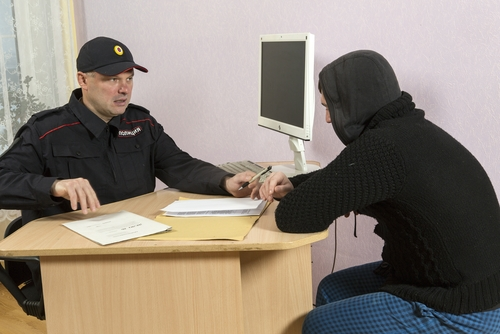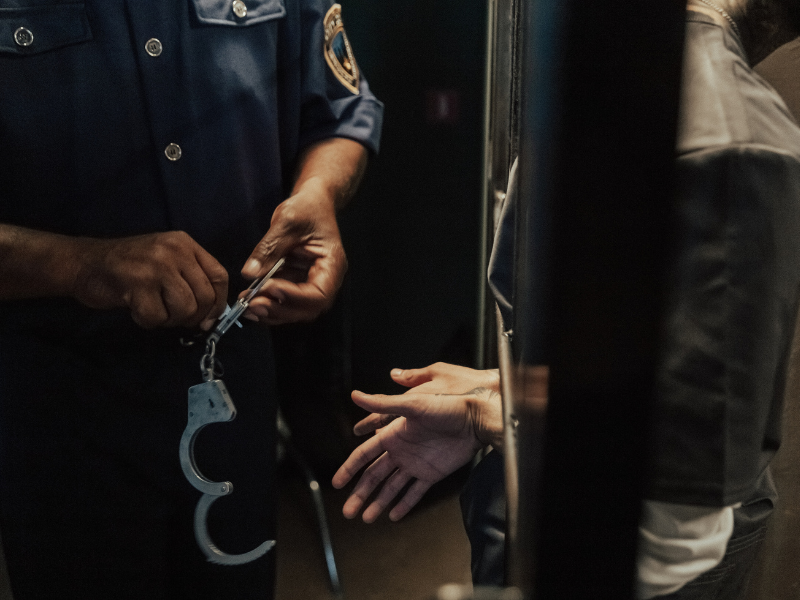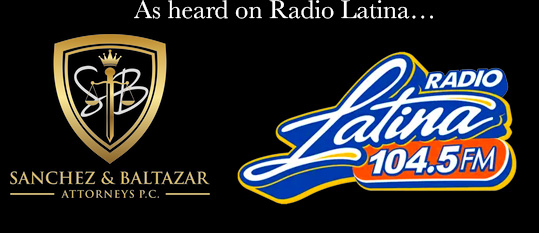The short answer is yes; your jail sentence can end early for good behavior. But there are some caveats to consider. For starters, not all jurisdictions have the same rules regarding an early release for good behavior. In some cases, it may only be available for non-violent offenders, while in others, all inmates may be eligible.

In addition, even if you are eligible for early release, it’s not a guarantee that you will actually be released early. That decision is ultimately up to the judge or parole board. Even if you are released early, there may be conditions attached, such as completing a drug rehabilitation program or remaining on probation.
So while it is possible to get out of jail early for good behavior, there are no guarantees. If you’re facing a jail sentence, be sure to talk to an attorney in your jurisdiction to learn more about the rules and regulations regarding the early release.
What are Some Things You can do to get an Early Release?
There are a few things you can do to try to get an early release from jail. First, it’s important to follow all the rules while you’re in jail. This includes things like obeying the guard’s instructions and not getting into fights with other inmates. Second, try to stay positive and keep your head up. This can be difficult, but it’s important to remember that your attitude can influence the decision-makers in your case.
Finally, try to be as helpful as possible while you’re in jail. This may mean participating in work programs or offering to help with cleaning or laundry. By showing that you’re willing to contribute to the community, you may improve your chances of getting an early release. Of course, the best way to avoid going to jail in the first place is to obey the law. If you do find yourself behind bars, remember that there may be hope for an early release if you play your cards right.
What Crimes are not Eligible for Early Release?
Not all crimes are eligible for early release, even if you have behaved well while in jail. In general, violent crimes are not eligible, nor are sex crimes or crimes involving children. Additionally, some jurisdictions exclude inmates who have been convicted of multiple offenses from early release programs. If you’re not sure whether your crime is eligible, be sure to ask your attorney.
While early release from jail is possible in some cases, it’s not a sure thing. If you’re facing a jail sentence, be sure to talk to an attorney to learn more about the rules and regulations in your jurisdiction. Keep in mind that the best way to avoid going to jail is to obey the law in the first place.

What are Crimes that are Eligible for Early Release?
While violent crimes and sex crimes are typically not eligible for early release, there are some other crimes that may be eligible. For example, drug offenses or property crimes may be eligible in some jurisdictions. Additionally, first-time offenders or those with minor criminal histories may also be more likely to receive an early release. If you’re not sure whether your crime is eligible, be sure to ask your attorney. As mentioned before, early release from jail is not a guarantee. If you are facing a jail sentence, be sure to talk to an attorney about the rules and regulations in your jurisdiction.
Can Anyone Receive Visitors in Jail?
No, not everyone in jail is allowed to have visitors. In most cases, only inmates who are classified as low-risk are allowed to have visitors. Inmates who are classified as high-risk or who are in protective custody are typically not allowed to have visitors. Additionally, some inmates may not be allowed to have visitors if they have been disruptive or if they have violated jail rules in the past. If you’re not sure whether you’re allowed to have visitors, be sure to ask your attorney or the jail staff.
Can Your Sentence Increase if You don’t Have Good Behavior in Jail?
Yes, in some cases, your sentence can be extended if you don’t follow the rules while you’re in jail. For example, if you get into fights with other inmates or if you refuse to obey the guard’s instructions, you may be punished with more time in jail. Additionally, if you’re convicted of a crime while you’re already in jail, your sentence may be extended as well. If you’re not sure whether your behavior can result in a longer sentence, be sure to ask your attorney.
Are You Allowed to Bring Any Belongings to Jail?
No, you are not typically allowed to bring any belongings with you to jail. In most cases, you will be given a jumpsuit to wear, and all of your personal belongings will be taken away from you. You may be able to keep a few personal items, such as a wedding ring or religious item, but in general, you will not be allowed to bring anything else with you. If you’re not sure what you’re allowed to bring, be sure to ask your attorney or the jail staff.
Can You Get Released From Jail on Your Own Recognizance?
Yes, in some cases, you may be released from jail on your own recognizance. This means that you are released from jail without having to post bail. In general, only low-risk offenders are released on their own recognizance. If you’re not sure whether you qualify, be sure to ask your attorney.
What is The Difference Between Probation and Parole?
Probation is a court-ordered period of supervision. During probation, you will be required to meet certain conditions set by the court, such as attending counseling or drug treatment, paying fines, or obeying a curfew. If you violate the terms of your probation, you may be sent to jail. A parole is a period of supervision after you have been released from jail. During parole, you will be required to meet certain conditions set by the parole board, such as attending counseling or drug treatment, paying fines, or obeying a curfew. If you violate the terms of your parole, you may be sent back to jail.

What is Electronic Monitoring?
Electronic monitoring is a method of supervising offenders who are released from jail. Offenders who are placed on electronic monitoring are required to wear a bracelet that tracks their location. They may also be required to check in with a parole officer regularly or to adhere to a curfew. If they violate the terms of their release, they may be sent back to jail.
What is Home Detention?
Home detention is a form of electronic monitoring. Offenders who are placed in home detention are required to stay at their homes at all times. They may be allowed to leave for work, school, or medical appointments, but they must otherwise remain at home. If they violate the terms of their release, they may be sent back to jail.
Can You Get a Job While You’re on Probation?
Yes, in most cases, you can get a job while you’re on probation. However, there may be some restrictions on the type of job you can get. For example, you may not be able to work in a position that involves contact with children if you’re on probation for a crime involving children. If you’re not sure what types of jobs you’re allowed to have, be sure to ask your probation officer.
What is a Halfway House?
A halfway house is a residential facility for offenders who are transitioning back into society. Halfway houses typically provide structure and support, such as counseling and job training. Residents of halfway houses are typically required to follow certain rules, such as obeying a curfew and participating in counseling. If they violate the rules, they may be sent back to jail.
What is an Ankle Monitor?
An ankle monitor is a type of electronic monitoring device that is worn around the ankle. Ankle monitors track the location of the offender and can be used to monitor their compliance with the terms of their release. If an offender violates the terms of their release, they may be sent back to jail.
What is a Furlough?
A furlough is a temporary release from jail. Furloughs are typically granted for special occasions, such as a holiday or a family emergency. Offenders who are on furlough are typically required to adhere to certain conditions, such as obeying a curfew or staying within a certain geographic area. If they violate the terms of their furlough, they may be sent back to jail.
What is a Work Release?
Work release is a program that allows offenders to leave jail to go to work. Offenders who are in the work release program are typically required to return to jail after their shift is over. They may also be required to adhere to certain conditions, such as obeying a curfew or staying within a certain geographic area. If they violate the terms of their work release, they may be sent back to jail.
What is a Day Reporting Center?
A day reporting center is a facility where offenders go to meet with their probation officer and participate in programs, such as counseling or job training. Day reporting centers typically have strict rules, such as requiring offenders to arrive on time for their appointments and prohibiting them from using drugs or alcohol. If offenders violate the rules of the day reporting center, they may be sent back to jail.

If you have questions about your jail sentence or the conditions of your release, contact S&B Legal today. Our experienced criminal defense attorneys can help you navigate the criminal justice system and fight for the best possible outcome in your case.


